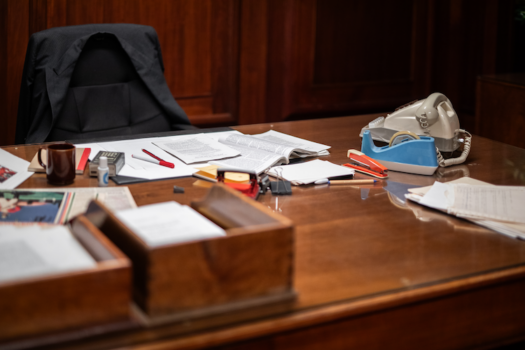
The New Jersey Supreme Court recently heard oral arguments in two cases addressing the scientific reliability of expert testimony that shaking alone can cause the injuries associated with shaken baby syndrome (SBS), also known as abusive head trauma (AHT).
Facts of the Case
The State sought to admit expert testimony to prove aggravated assault and child endangerment charges against defendants Darryl Nieves and Michael Cifelli, fathers of infant sons who exhibited associated symptoms while in their respective fathers’ care. Following a hearing conducted pursuant to Frye v. United States, 293 F. 1013 (D.C. Cir. 1923), Judge Pedro J. Jimenez, Jr. concluded that expert testimony of shaking-only SBS/AHT was not scientifically reliable, barred admission of the evidence at Nieves’s trial, and dismissed the indictment against Nieves. Over the State’s objection, Judge Benjamin S. Bucca, Jr. adopted the decision barring the testimony, ruling that the parties had previously agreed to be bound by Judge Jimenez’s decision in the Nieves matter in the prosecution of Cifelli.
The State sought leave to appeal the orders relating to both defendants, and the Appellate division consolidated the appeals. The State challenged Judge Jimenez’s decision dismissing Nieves’s indictment based on the purported inadmissible evidence, arguing it established SBS/AHT’s general acceptance within the medical community through expert testimony and supporting authoritative scientific studies.
Appellate Division’s Decision
The Appellate Division affirmed. It agreed with the trial court that the State had not “demonstrated general acceptance of the SBS/AHT hypothesis to justify its admission in a criminal trial.”
According to the Court, the State failed to establish SBS/AHT’s general acceptance within the medical community through expert testimony, supporting authoritative scientific studies, and judicial opinions. “The very basis of the theory has never been proven,” Judge Greta Gooden Brown wrote in the court’s opinion. “The State has not demonstrated general acceptance of the SBS/AHT hypothesis to justify its admission in a criminal trial.”
In reaching its decision, the New Jersey Supreme Court determined that when the underlying theory integrates multiple scientific disciplines, the proponent must establish cross-disciplinary validation to establish reliability.
“The evidence supports the finding that there is a real dispute in the larger medical and scientific community about the validity of shaking only SBS/AHT theory, despite its seeming acceptance in the pediatric medical community,” Judge Gooden Brown wrote.
“Where the underlying theory integrates multiple scientific disciplines, as here, the proponent must establish cross- disciplinary validation to establish reliability. The State failed to do that here.”
According to the Appellate Division, the evidence revealed that there is no general acceptance from the biomechanical community, and biomechanical testing has never proven the premise of SBS/AHT. “Because biomechanical theory is the foundation of the SBS/AHT hypothesis, the lack of biomechanical support renders the theory scientifically unreliable, notwithstanding its support in the pediatric community,” Judge Gooden Brown wrote. Based on its holding, the Appellate Division affirmed the dismissals of the indictments in both cases.
Issues Before the NJ Supreme Court
The New Jersey Supreme Court granted certification on March 28, 2024. The justices agreed to consider the following question: “Is the diagnosis of abusive head trauma, commonly known as shaken baby syndrome, scientifically reliable?”
The Court held oral arguments on October 21, 2024. David M. Liston, the appellate section chief for the Middlesex County Prosecutor’s Office, argued that the state satisfied its burden of showing general acceptance of abusive head trauma in the broad scientific community and placed too much emphasis on biomechanical engineers. “Yet despite the demonstrated consensus among professionals in numerous medical specialties, the Appellate Division held that a lack of consensus in one group of scientists, biomechanical engineers, was enough to overcome the broad consensus among medical professionals and render testimony on abusive head trauma unreliable,” Liston argued.
On the other side, Cody T. Mason of the New Jersey Office of the Public Defender emphasized that there is a distinction between abusive head trauma and shaken baby syndrome. “This case is about the scientific reliability of the shaken baby syndrome or abusive head trauma without signs of impact,” Mason said. “That is the scientific theory the state has relied upon in this case to allege that Mr. Nieves violently shook his 11-month-old son.” He added: “The position of the biomechanical community and the biomechanical experts in our case is not that shaking cannot cause these injuries, it is that they have repeatedly tested this other hypothesis … and it has repeatedly failed to prove it.” We will continue to follow this case. Please check back for updates.
